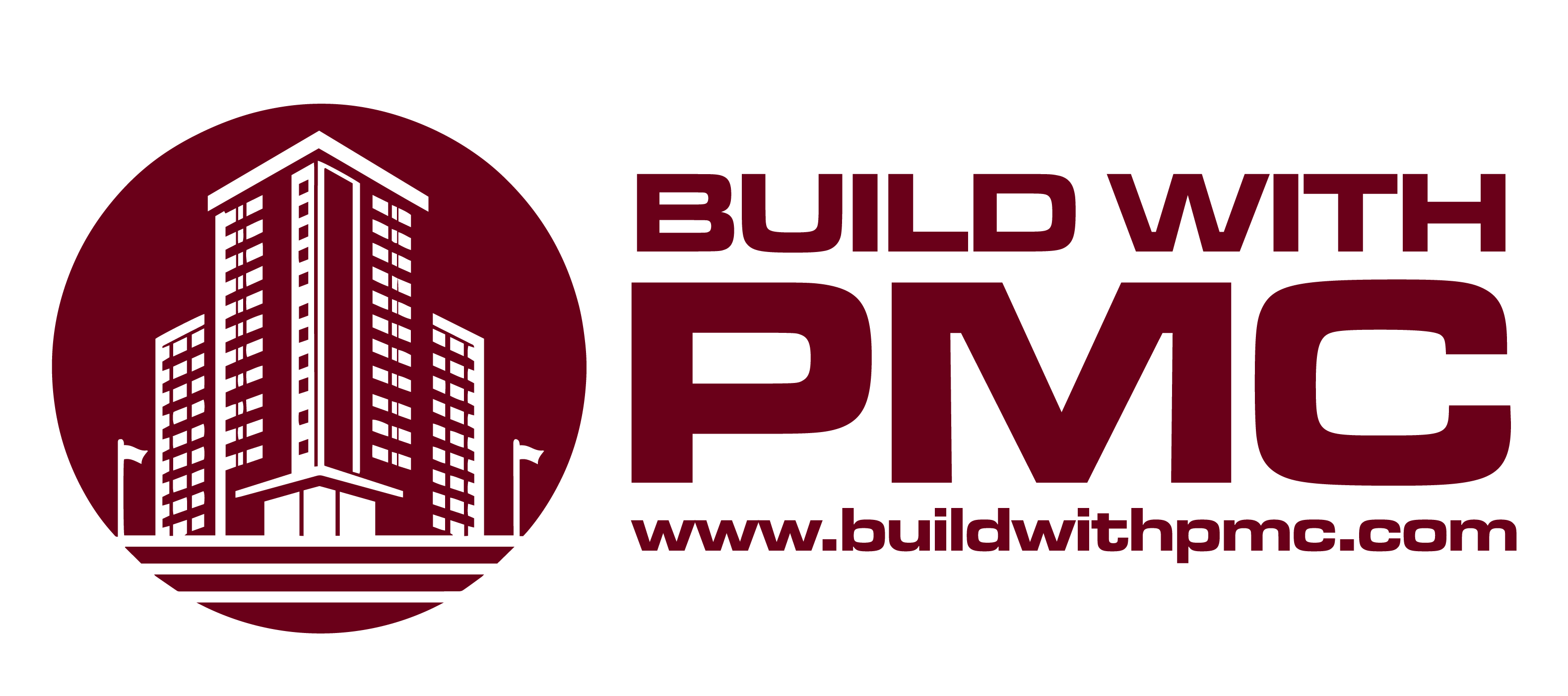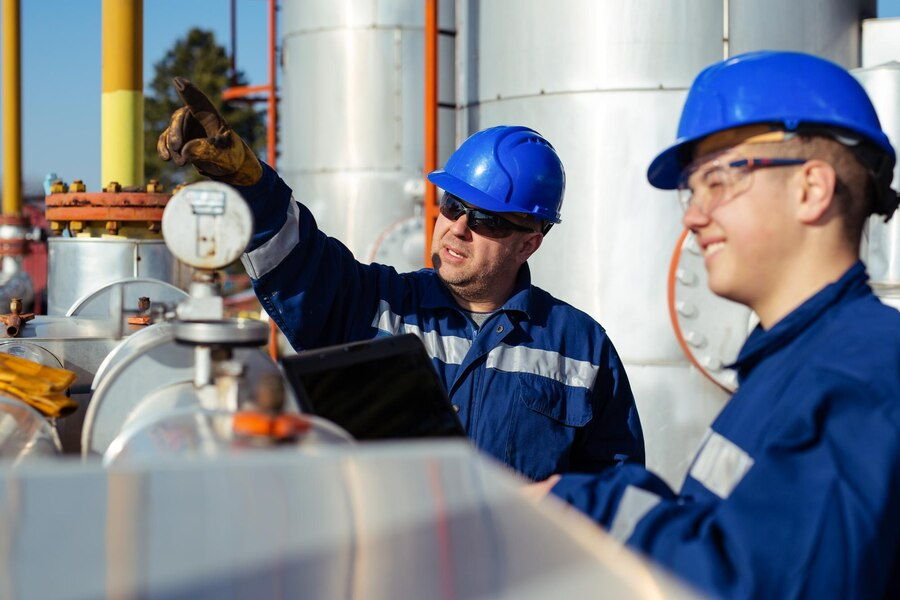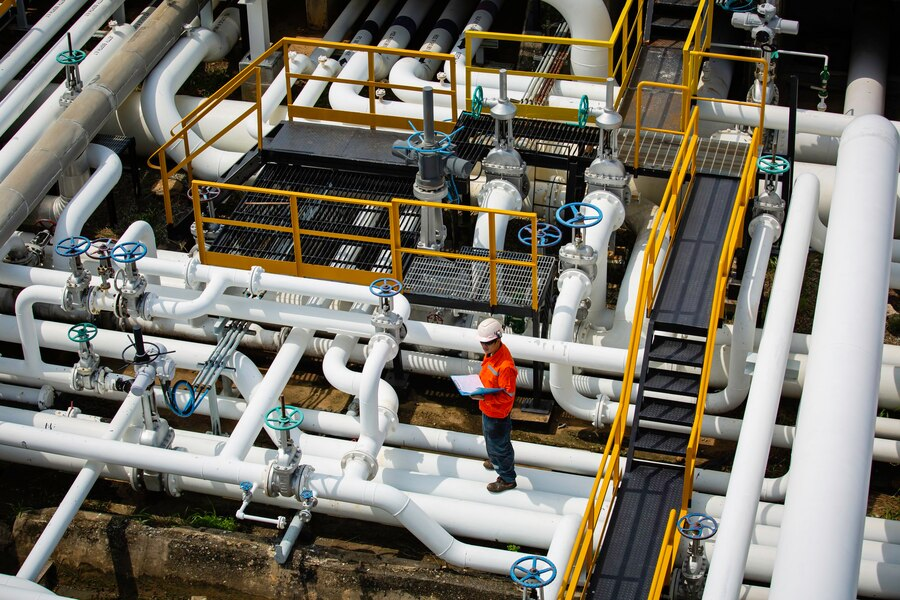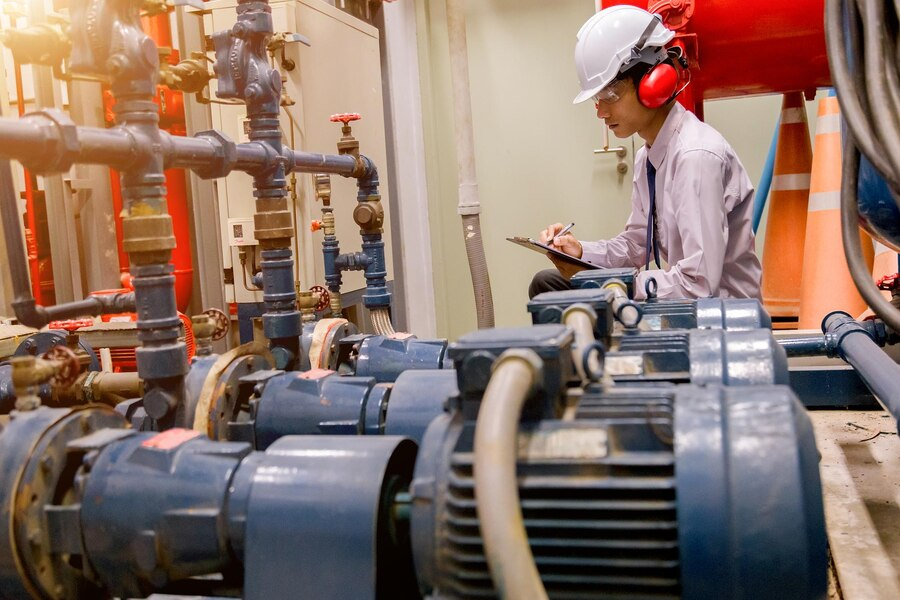In the intricate world of industrial operations, process piping plays a critical role that extends far beyond mere functionality. This network of pipes, valves, and fittings acts as the lifeline of manufacturing and processing plants, enabling the efficient transport of liquids, gases, and slurries. Proper installation is essential not only to meet stringent regulatory standards but also to ensure that the system operates at its highest potential. Accurate installation prevents issues such as leaks and blockages, which can disrupt production and lead to costly downtime.
Moreover, a well-installed process piping system enhances overall operational efficiency and safety. By minimizing the risk of malfunctions and ensuring smooth material flow, businesses can achieve higher production rates and better product quality. Additionally, the system’s reliability reduces the frequency of maintenance and repair needs, further contributing to operational cost savings. Proper installation is, therefore, a foundational aspect of achieving a safe, efficient, and cost-effective industrial operation.
Ensuring Operational Efficiency
At the heart of every successful industrial process lies efficiency. Properly installed process piping systems are fundamental to achieving this goal. When pipes are aligned correctly, and connections are properly sealed, there is minimal risk of leaks or blockages. This precision helps maintain a steady flow of materials, which is vital for production consistency and quality control.
Proper installation also reduces the likelihood of pressure drops and turbulence within the system. These issues can lead to increased energy consumption and operational costs. By adhering to best practices in piping installation, businesses can ensure that their systems operate smoothly, reducing the need for frequent maintenance and repairs.
Enhancing Safety Standards
Safety is paramount in any industrial setting. Improperly installed piping systems can pose significant risks, from hazardous leaks to catastrophic failures. For instance, leaks in a process piping system carrying flammable or toxic substances can lead to dangerous and potentially life-threatening situations. Ensuring that pipes are installed correctly helps prevent such occurrences.
A well-installed piping system adheres to safety regulations and standards, reducing the risk of accidents. Proper installation includes thorough inspections and testing of the system before it goes live. This proactive approach ensures that potential issues are identified and addressed before they can cause harm. Regular maintenance, which is easier to manage with a correctly installed system, further contributes to a safer work environment.
Maximizing Longevity and Durability
Investing in high-quality materials and expert installation pays off in the long run. Process piping systems that are installed properly tend to have a longer lifespan. This durability is crucial for minimizing downtime and reducing the need for frequent replacements or repairs.
High-quality pipes and fittings, when installed correctly, resist corrosion, erosion, and other forms of wear and tear. This resilience is particularly important in environments where pipes are exposed to harsh chemicals or extreme temperatures. Proper installation practices, such as using the right type of pipe supports and ensuring correct alignment, contribute to the longevity of the system.
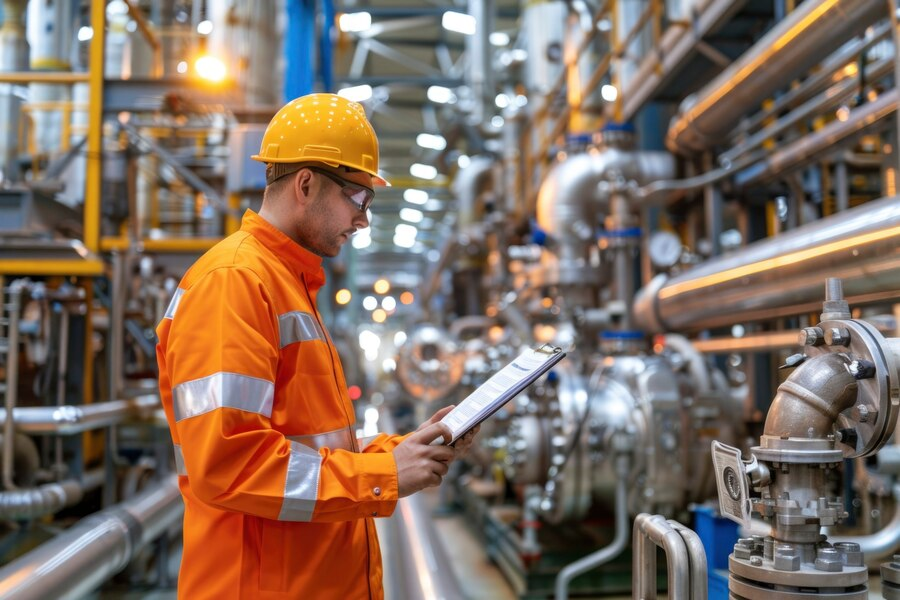
Optimizing Energy Efficiency
Energy efficiency is a significant concern in modern industrial operations. Process piping systems that are not installed correctly can lead to energy inefficiencies. For example, poorly aligned pipes or improperly sealed joints can cause leaks, which lead to energy losses and increased operational costs.
A properly installed system ensures that the flow of materials is smooth and consistent, minimizing the energy required to pump or move substances through the pipes. Additionally, reducing leaks and pressure drops decreases the amount of energy needed to maintain the desired flow rate. Over time, these efficiency gains can translate into substantial cost savings for the business.
Facilitating Compliance with Regulations
Industries are subject to a range of regulations and standards governing process piping systems. Proper installation is key to ensuring compliance with these regulations, which often include safety, environmental, and operational requirements.
By adhering to best practices and industry standards during installation, businesses can avoid potential legal issues and penalties. Compliance with regulations also enhances the reputation of the company as a responsible and safety-conscious operator. Regular inspections and maintenance, part of a well-implemented installation process, help ensure ongoing compliance.
Supporting Scalability and Adaptability
Industries are dynamic, and process requirements can change over time. Properly installed piping systems offer the flexibility to adapt to new processes or scale operations. For instance, if a plant decides to expand its production line, a well-designed and installed piping system can be adjusted or extended with minimal disruption.
Scalability is particularly important in industries that experience fluctuating demands or those that are rapidly growing. A system that was installed with future adaptability in mind will be easier to modify, reducing the costs and complexities associated with upgrading or expanding operations.
Enhancing System Monitoring and Maintenance
Effective monitoring and maintenance are crucial for the long-term performance of process piping systems. A properly installed system allows for easier monitoring and maintenance. For example, well-placed inspection points and accessible valves make it simpler to conduct regular checks and address any issues that arise.
Routine maintenance becomes more manageable when the system is installed correctly. This proactive approach helps prevent minor issues from escalating into major problems, thereby reducing the risk of unplanned downtime and costly repairs.
Improving Environmental Impact
Environmental considerations are increasingly important in industrial operations. Proper process piping installation contributes to minimizing the environmental impact of a facility. For instance, well-sealed pipes reduce the risk of leaks, which can lead to environmental contamination.
Efficiently operating piping systems also support sustainable practices by optimizing the use of resources and reducing waste. By preventing leaks and ensuring smooth operation, businesses can lower their environmental footprint and contribute to a more sustainable industrial practice.
Enhancing Product Quality
In many industries, the quality of the final product is directly influenced by the efficiency and reliability of the process piping system. For example, in the food and beverage industry, maintaining precise temperatures and preventing contamination are critical. Properly installed piping systems ensure that these conditions are met, leading to higher product quality.
By avoiding issues such as contamination or inconsistent flow rates, businesses can produce higher-quality products that meet or exceed industry standards. This focus on quality not only benefits the end consumer but also enhances the company’s reputation and competitiveness in the market.
Reducing Overall Costs
While the initial investment in high-quality materials and expert installation might seem significant, the long-term cost savings are substantial. Proper process piping installation reduces the likelihood of costly repairs, replacements, and downtime.
Moreover, the efficiency gains from a well-installed system translate into lower operational costs. Reduced energy consumption, fewer leaks, and minimized maintenance needs contribute to overall cost savings. In the long run, these financial benefits often outweigh the initial investment, making proper installation a wise economic decision.
Benefits of Correctly Installed Process Piping for Industrial Operations
Properly installed process piping systems are crucial for optimizing industrial operations. Accurate installation ensures that pipes, valves, and fittings are correctly aligned and securely connected, which prevents leaks and blockages. This precision helps maintain a smooth flow of materials, leading to improved operational efficiency. When pipes are installed correctly, energy consumption is minimized, as the system operates at its peak performance with fewer disruptions. This efficiency translates into cost savings and a more reliable production process.
Additionally, correctly installed process piping systems contribute significantly to safety and compliance. By following industry standards and regulations during installation, businesses reduce the risk of hazardous leaks or catastrophic failures. Regular maintenance becomes more manageable with a well-installed system, further enhancing safety and prolonging the system’s lifespan. Overall, proper installation is essential for maintaining a safe and efficient industrial operation.
Maximizing Operational Benefits with Proper Process Piping Installation
Maximizing the operational benefits of process piping begins with proper installation. A well-installed piping system ensures that all components, from pipes to fittings, are aligned and functioning correctly. This attention to detail prevents common issues such as leaks and pressure drops, which can disrupt operations and lead to costly downtime. By maintaining a steady and efficient flow of materials, businesses can achieve higher production rates and improved product quality.
Moreover, investing in proper process piping installation supports long-term operational success. Systems that are correctly installed require less frequent maintenance and repairs, which reduces operational costs over time. This approach not only enhances the reliability of the system but also contributes to energy savings and environmental sustainability. Proper installation ultimately leads to a more efficient, safe, and cost-effective industrial operation, providing significant benefits for the business.
Conclusion
The benefits of proper process piping installation are clear. From enhancing operational efficiency and safety to reducing long-term costs, investing in quality installation is crucial for any industrial operation. Accurate installation not only ensures smooth and reliable performance but also contributes to a safer and more cost-effective workplace. By prioritizing precision in your process piping, you can optimize performance and support the overall success of your business.
For expert assistance with process piping installation, PMC INC is here to help. Based in Fontana, California, we specialize in delivering top-notch piping solutions tailored to your needs. Contact us today at 562-905-3101 or visit us at 14563 Manzanita Dr, Fontana, CA 92335. Let’s ensure your system operates at its best with professional installation and support.
